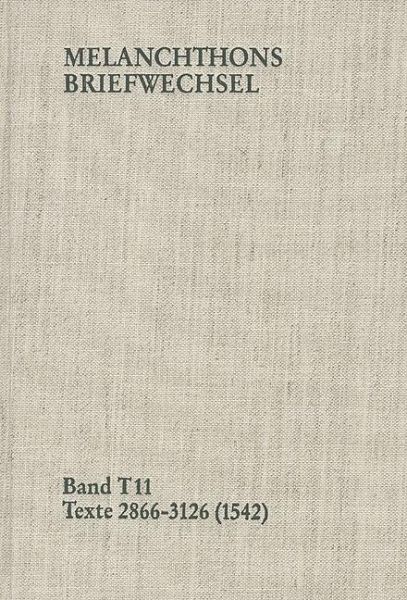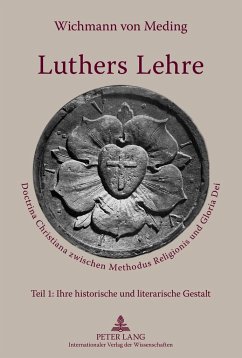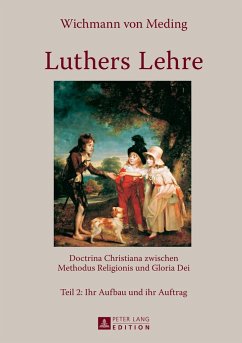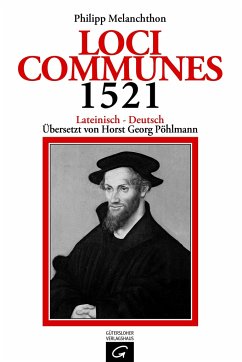Nicht lieferbar

Melanchthons Briefwechsel (MBW) BD T 11. Kritische und kommentierte Gesamtausgabe. Im Auftrag der Heidelberger Akademie der Wissenschaften herausgegeben von Heinz Scheible / T - Edition / Band T 11
Versandkostenfrei!
Nicht lieferbar
Nach den Reisen der vergangenen Jahre zu Reichstagen und Religionsgesprächen verbringt Melanchthon das Jahr 1542 fast ausschließlich in Wittenberg. Von hier aus verfolgt er die Reichstage in Speyer und Nürnberg und tauscht mit seinen Korrespondenzpartnern Informationen aus. Mit banger Furcht werden die in Ungarn stehenden Türken und der Heerzug Joachims von Brandenburg gegen sie beobachtet. Viele Briefe aus dem Alltag Melanchthons zeigen, wie groß der Einfluss des Professors war; neben zahlreichen Empfehlungsschreiben ist seine Mitwirkung an der Besetzung etlicher vakanter Schul- und Pfar...
Nach den Reisen der vergangenen Jahre zu Reichstagen und Religionsgesprächen verbringt Melanchthon das Jahr 1542 fast ausschließlich in Wittenberg. Von hier aus verfolgt er die Reichstage in Speyer und Nürnberg und tauscht mit seinen Korrespondenzpartnern Informationen aus. Mit banger Furcht werden die in Ungarn stehenden Türken und der Heerzug Joachims von Brandenburg gegen sie beobachtet. Viele Briefe aus dem Alltag Melanchthons zeigen, wie groß der Einfluss des Professors war; neben zahlreichen Empfehlungsschreiben ist seine Mitwirkung an der Besetzung etlicher vakanter Schul- und Pfarrstellen und an der Gründung der Königsberger Universität dokumentiert.








